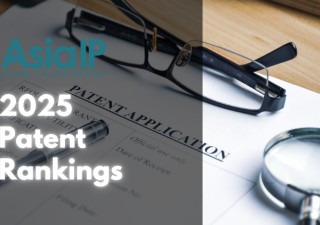Anticipation and Grace Period in India
09 November 2012

Novelty is one of the important criteria for determining the patentability of an invention. The general principle followed to assess novelty is that the subject of the invention is not anticipated that is the subject matter has not fallen into the public domain. The subject matter of a patent application can fall in the public domain and make it anticipated through either prior publication in patent or any kind of non-patent literature, or by public display, use, or commercial sale. However, for such acts, a grace period may be available in certain countries within which if a patent application is filed then it is not considered as anticipation.
What constitutes anticipation differs from country to country, depending upon either the availability or absence of a grace period. The United States provides for a one year grace period for publication or use, including commercial working for determining anticipation, and follows the principle of relative novelty.
On the other side, Europe has more stringent requirements for determining anticipation, following the principle of absolute novelty. In Europe, there is no grace period except for a six-month period in instances of abusive obtaining or public display in official international exhibition.
The Indian patent laws take a median approach and provide for grace periods in certain circumstances for determining anticipation. The Indian Patents Act expressly does not define what anticipation is; rather, it mentions what are not anticipations in Sections 29 to 34. One can deduce what is anticipation by construing what is not anticipation. Besides, one may also refer to Section 13, which outlines procedures for examiners searching for anticipation as well as Section 25 (1) and (2), which outline grounds for opposition to patents.
In India, a patent application is considered as anticipated if the invention is disclosed in a patent or any other document which is published before the priority date of the application. However, if the inventor proves that the matter published was obtained from him fraudulently and was published without his consent, then it may not be considered as anticipation. Also, if the applicant files a patent application as soon as he learns about the fraudulent obtaining and publication and proves the same, then it is not considered as anticipation, provided the invention has not been commercially worked before filing of the patent application.
In instances where the inventor or the applicant for a patent discloses the invention to another person who files a patent application for the same invention in contravention of the rights of the innovator and uses or publishes the same without the consent of the innovator but after filing of the patent application, then such use and publication after the filing of the patent application by the other person will not anticipate the patent application of the innovator.
Besides publication, reading the description of an invention also amounts to anticipation in India. However, there is a grace period of one year, but only for reading done in front of a learned society or publication in the transactions of such learned society.
Working of an invention on a commercial scale before the priority date of the application amounts to anticipation in India, and there is no grace period for the same.
However, Indian patent law provides for a Bolar-like provision, similar to what is in place in the US. If the invention is worked publicly for trial purposes, for example, to gather the data for regulatory approval, there is a grace period of one year within which a patent application needs to be filed to avoid any anticipation.
Also,communication of the invention to the government for investigating the invention or its merits, for example, to obtain approval from appropriate government agencies before the filing of the patent application, will not be considered as anticipation.
In India, any public display or use of the invention by the inventor (or with the inventor’s consent) amounts to anticipation. However, the public display or use in an exhibition notified by the central government in the official gazette is not considered anticipation, provided a patent application is filed within one year from such public display, use or publication in the proceedings of government notified exhibitions.
Any use or publication of an invention after filing a provisional patent application in India will not be considered anticipation.
Also, for a patent application filed under the Paris convention, public use or publication of an invention either in India or elsewhere after filing of the application in convention country will not be considered as anticipation.
In India, invention can also be anticipated by knowledge, either oral or in any other form existing in a local or indigenous community in India or elsewhere.
The criteria for determining anticipation, as well as availability of grace period, are not uniform in all the jurisdictions.
An invention may be considered novel in the US, but the same may be objected to as lacking novelty due to anticipation in places like Europe or India. Thus, an applicant must understand the criteria for anticipation and the availability of a grace period in different jurisdictions before applying for the patent.
Krishna & Saurastri
K.K. Chambers, 1st Floor,
Sir P.T. Marg, Fort,
Mumbai 400 001, India
T: +91 22 2200 6322
F: +91 22 2200 6326
E: info@krishnaandsaurastri.com
W: www.krishnaandsaurastri.com






